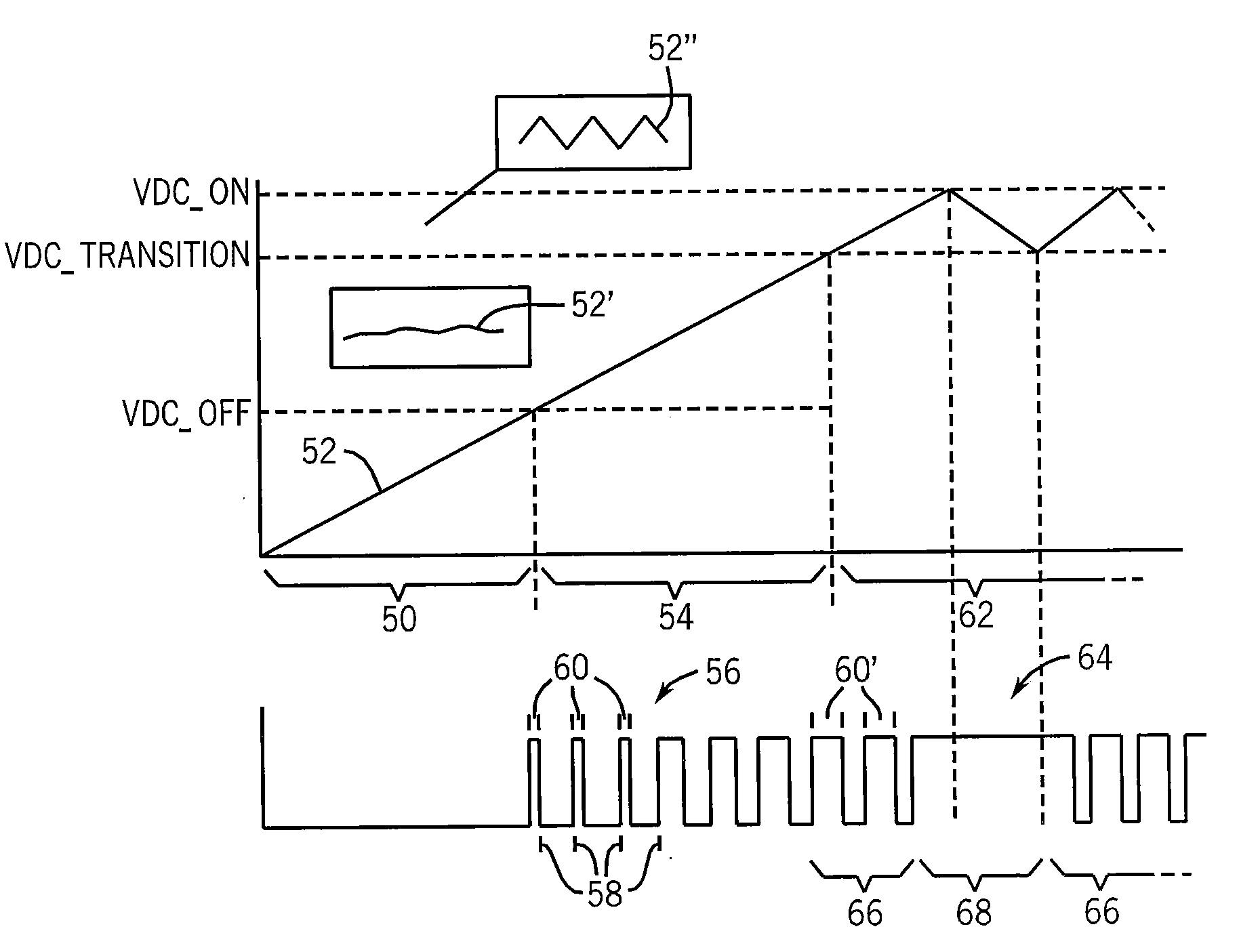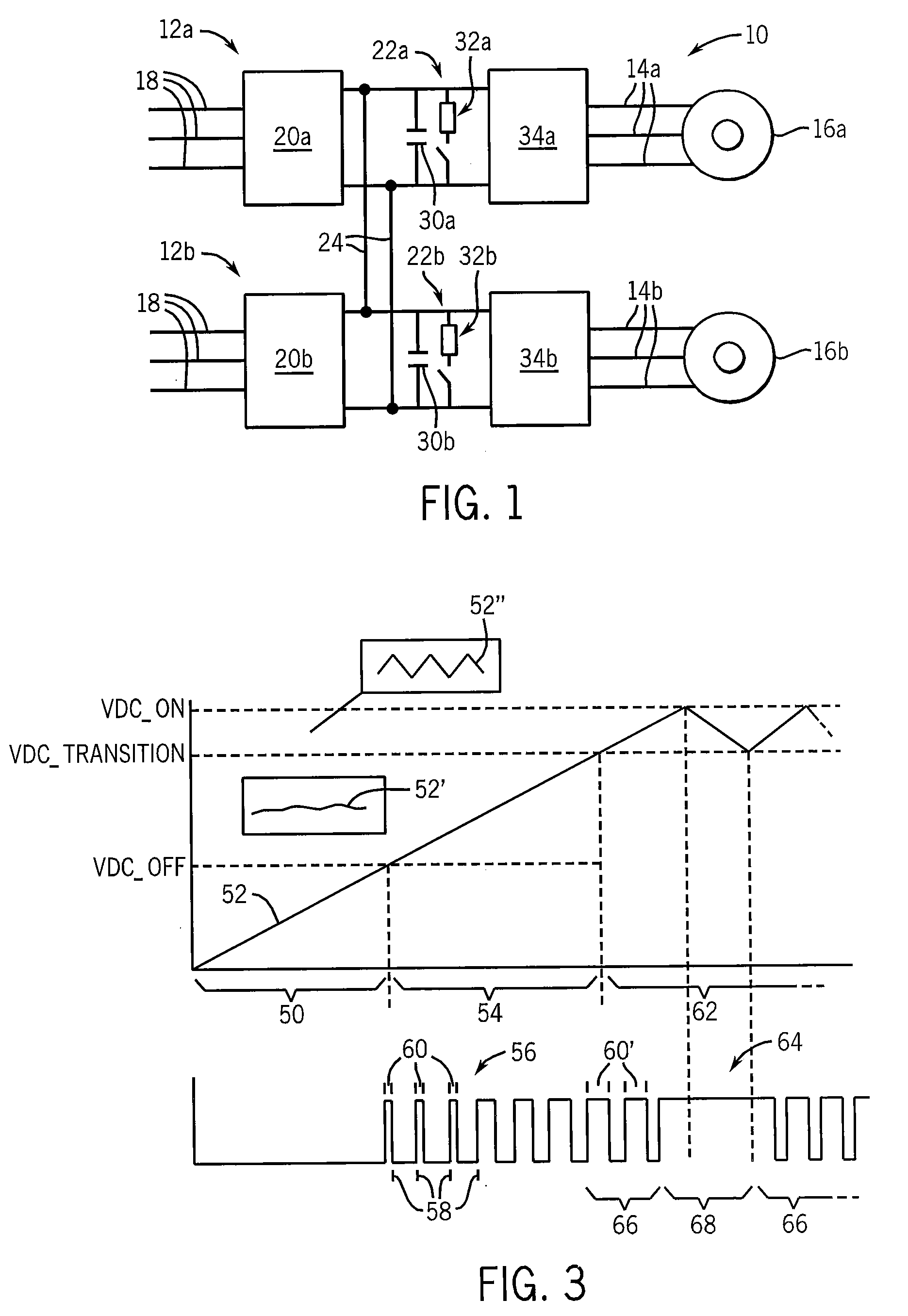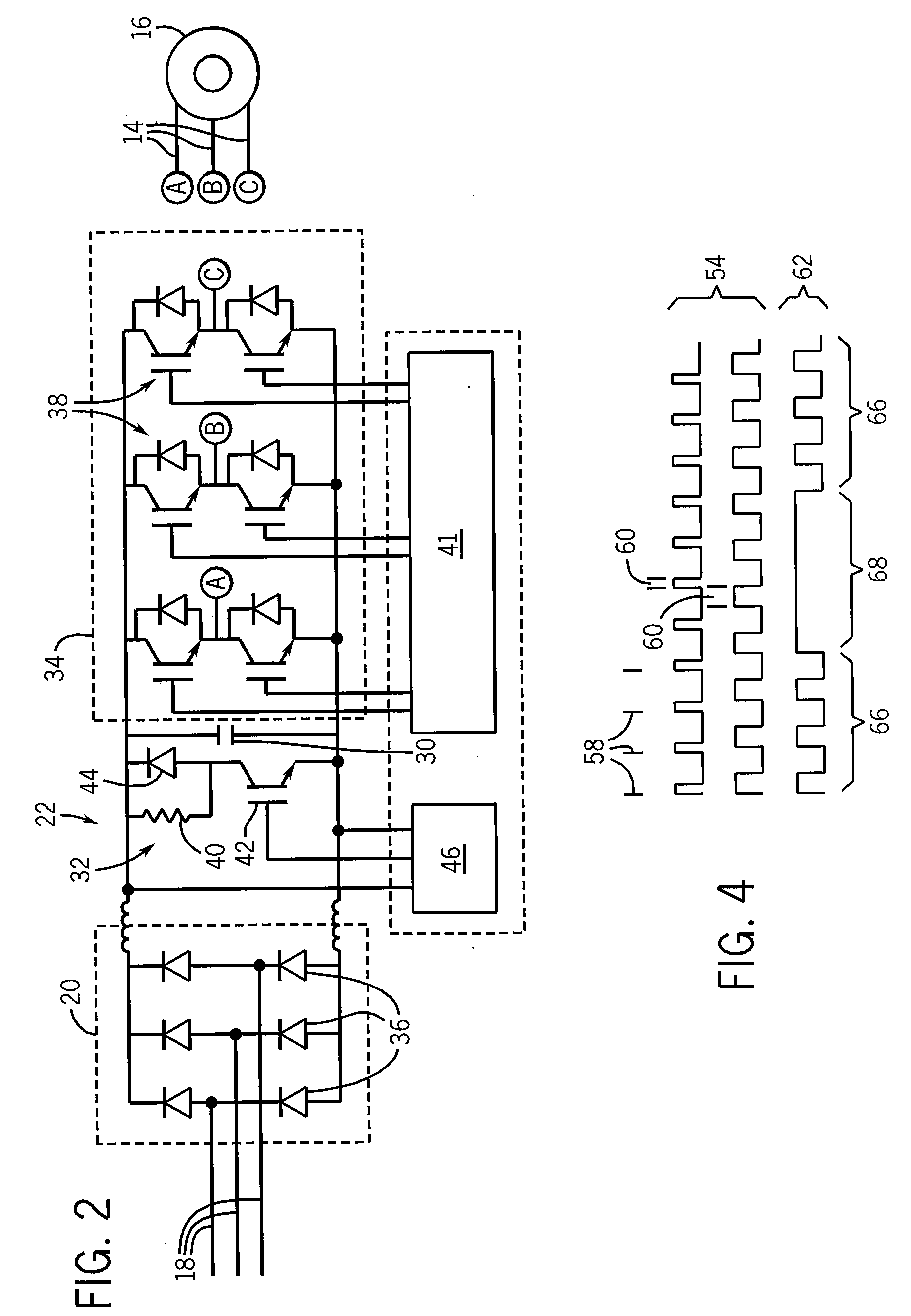Electric motor drive employing hybrid, hysteretic/pulse-width-modulated dynamic braking
a technology of dynamic braking and electric motor, applied in the direction of motor/generator/converter stopper, dynamo-electric converter control, dc motor stopper, etc., can solve the problem of far less ripple voltage during hysteretic control than that obtained with pure hysteretic, and achieve the effect of increasing the power handling capacity of solid-state switching device, reducing switching frequency, and small increase in bus voltage rippl
- Summary
- Abstract
- Description
- Claims
- Application Information
AI Technical Summary
Benefits of technology
Problems solved by technology
Method used
Image
Examples
Embodiment Construction
[0035]Referring now to FIG. 1, a motor control system 10 may include a first motor drive 12a and a second motor drive 12b each providing controlled three-phase power 14a and 14b to respective motors 16a and 16b. The motors 16a and 16b may, for example, be 50 hp or 15 hp motors drawing as much as 65 or 22 amps at approximately 460 VAC RMS or approximately 650 VDC. Referring to FIGS. 1 and 2, motor drives 12a and 12b may receive three-phase power 18 at respective rectifiers 20a and 20b to produce DC power on DC links 22a and 22b. Sometimes, the drives may also be used as a common DC bus configuration where its power is drawn from a common DC bus without rectifier circuit enabled. As shown in FIG. 2, the rectifier 20 may, for example, be a bridge of diodes 36 rectifying the three-phase power 18 into a high voltage (approximately 650 VDC) on the DC link 22. The DC links 22a and 22b may be shunted by link capacitors 30a and 30b respectively which provide for energy storage.
[0036]Power fr...
PUM
 Login to View More
Login to View More Abstract
Description
Claims
Application Information
 Login to View More
Login to View More - R&D
- Intellectual Property
- Life Sciences
- Materials
- Tech Scout
- Unparalleled Data Quality
- Higher Quality Content
- 60% Fewer Hallucinations
Browse by: Latest US Patents, China's latest patents, Technical Efficacy Thesaurus, Application Domain, Technology Topic, Popular Technical Reports.
© 2025 PatSnap. All rights reserved.Legal|Privacy policy|Modern Slavery Act Transparency Statement|Sitemap|About US| Contact US: help@patsnap.com



